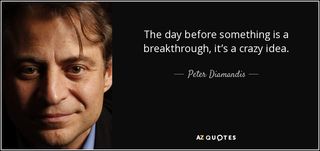WP member, Jeffrey Bellomo, talks about the workshop benefit for your community.
View the video on Youtube here. You can also learn what he discusses community impact of workshops by reading our blog post below:
WP member, Jeffrey Bellomo, talks about the workshop benefit for your community.
View the video on Youtube here. You can also learn what he discusses community impact of workshops by reading our blog post below:
At Lawyers With Purpose, our success is deeply rooted in a set of core values that shape both our personal and professional lives. These guiding principles are more than just ideals—they are the bedrock of our community and the key to building a thriving law firm. Here’s how our unique set of core values—Open, Curious, Aware, Collaborative, Adaptable, and Generous—can drive your firm’s success.
Estate planning is a quickly changing field, constantly influenced by updates in elder law, tax law, and family law. At Lawyers With Purpose (LWP), our Monthly Member Training Roundtables provide an invaluable resource, equipping attorneys with the knowledge and tools to learn about these changes effectively.
On January 24, 25 and 26, I had the opportunity to attend my second Abundance 360 event. For those of you who are unfamiliar with the Abundance community, it is led by Peter Diamandis, an amazing entrepreneur who has identified his goal to transform and improve the world. Peter's first book, “Abundance: The Future is Better Than You Think,” written with Steven Kotler, was an immediate insight into a world of abundance that is approaching. His second book, “BOLD: How to Go Big, Create Wealth and Impact the World,” which was recently released, has changed the game for entrepreneurs from simple business owners to world transformers. Peter also has a great blog, which I recommend you sign up for just to be aware of what's going on in the world around you.
 In the three‑day conference, we were exposed to the amazing advancements of artificial intelligence, robotics, returns, sensors, augmented reality, material successes, and the impact of each on medical advancement. The fundamental element of the future of entrepreneurialism centers around the six D’s of exponential growth. First among those is to digitize. That is, to put into technology what is capable of being delegated to it. Second is the deceptive stage, where things are happening and no one is aware, but they are happening nonetheless. Third is the disruptive stage, when people begin to become aware of what has been digitized and has been unknown, and it begins to disrupt the way we look at what we do. Uber is a perfect example of something that was digitized, deceptive, and has become disruptive. The final three D's relate to dematerialization; that is, to eliminate the necessity of materialism – for example, how a cellphone has eliminated the need for flashlights, cameras, recording devices, calculators, and myriad other elements we typically relied on in the past. The fifth D is to demonetize. That is, to take the cost out of the technology, as we have seen with the cost of computers, cellphones and the like that have come down dramatically since they were first introduced. And the final D is democratization, to ensure availability globally as easy as locally.
In the three‑day conference, we were exposed to the amazing advancements of artificial intelligence, robotics, returns, sensors, augmented reality, material successes, and the impact of each on medical advancement. The fundamental element of the future of entrepreneurialism centers around the six D’s of exponential growth. First among those is to digitize. That is, to put into technology what is capable of being delegated to it. Second is the deceptive stage, where things are happening and no one is aware, but they are happening nonetheless. Third is the disruptive stage, when people begin to become aware of what has been digitized and has been unknown, and it begins to disrupt the way we look at what we do. Uber is a perfect example of something that was digitized, deceptive, and has become disruptive. The final three D's relate to dematerialization; that is, to eliminate the necessity of materialism – for example, how a cellphone has eliminated the need for flashlights, cameras, recording devices, calculators, and myriad other elements we typically relied on in the past. The fifth D is to demonetize. That is, to take the cost out of the technology, as we have seen with the cost of computers, cellphones and the like that have come down dramatically since they were first introduced. And the final D is democratization, to ensure availability globally as easy as locally.
Entrepreneurs of Abundance are now working under these core concepts, so they are no longer just ideas. There are myriad entrepreneurs who have focused their future vision on transforming the world, not just their local marketplace. These are what Dan Sullivan, of Strategic Coach, has called game changers. I encourage you to click on this video to watch the Emmy Award-winning short film on Peter Diamandis (but hurry because they are offering a Free Online Pre-Screening that will expire February 20th). It will cause you to identify a new world of abundance that may be deceptive to you currently, but just getting in the conversations will help you find your place within it.
If you want to learn more about our Cloud Based Work Flow System join our live demo on Friday, February 26th at 2EST. Just click here to reserve your spot now!
David J. Zumpano, Co-Founder, Lawyers With Purpose
Churchill Law Office answered this from a team perspective, not an attorney perspective. We think it's awesome! What do you think?
What is the greatest success you’ve had since joining LWP?
Maintaining a successful firm even after crisis occurred when the Attorney was in a car accident. A large portion of our success is the Actionstep platform and having the technical knowledge within the office to program and automate everything and staying in the black!
 What is your favorite LWP tool?
What is your favorite LWP tool?
This is a cop-out, but they are all amazing in that they have assisted us to maintain even in crisis. The way the stories tie to the Estate Plan Audit, and then the Vision Clarifier have been a massive support in reminding clients of their goals in follow-ups.
How has being part of LWP impacted your team and your practice?
Being able to call for help. The greatest example is one, Nedra’s constant ideas, two, Candace’s drive to move forward, and most of all, three, without Molly “encouraging”, e.g. “do it”, with regard to us doing Vision’s without the Attorney, we would have had to close the office after Debbie’s accident.
Share something about yourself that most people don’t know about you.
Beth is a very experienced database and lean management trainer! Beth is a bit of a recluse.
Melissa worked for 14 years in daycare and this is her first office job and has surpassed any assistant we’ve ever had in the office. Melissa is a HUGE prankster.
John has extensive experience in programming and automates everything in Actionstep beyond its basic programming. John has played the piano for 30 years.
Debbie is a successful attorney with a secret passion for beading! She makes most of her own jewelry.
Terry is retired, and was an instructor helicopter with the Guard before joining our team. He makes a mean chocolate chip cookie for the clients.
What is your favorite book and how did it impact your life?
John – Technical programming books. It has advanced his piano recording and office efficiency.
Melissa – To Kill a Mockingbird – It makes her sound more sophisticated when asked what her favorite book is.
Beth – Machine that Changed the World – Has simplified her life both at home and work through lean management.
Debbie – The Biology of Belief – Helps her to grow spiritually.
Terry – Killer Angels – Loves history and it a great portray of struggle, honor, and patriotism.
While on business in Las Vegas, I was at dinner with friends and colleagues sharing our dreams. I mentioned that the one thing I would love to do while in town was to see Celine Dion perform at Caesar’s Palace. Before I knew it, I had fourth row center seats for the show the very next night. I was so excited and ready to be entertained. Surprisingly, Celine’s performance also taught me a tremendous amount on how to really run a business. The lessons below are listed in order of how I recognized them during the concert, but in no other order of priority.
 The LessThe Lessons:
The LessThe Lessons:
Celine Dion is amazing and I highly recommend seeing her performance if you find yourself in Las Vegas. Between now and then, you too can be amazing and give your clients the best show in town. With so many to choose from, taking these lessons from Celine Dion can really help you stand out from the others and leave your clients feeling special.
It’s time to stop just "thinking" about becoming a Lawyers With Purpose Member. Becoming a member will forever change your practice. You owe it to yourself to spend a few minutes reading through this page: www.joinlwp.com. Join us in 2016! And of course if you have ANY questions or concerns, just pick up the phone and call Molly Hall at 877-299-0326 x 102 and hammer out anything holding you back.
Victoria L. Collier, Co-Founder, Lawyers with Purpose, LLC, www.LawyersWithPurpose.com; Certified Elder Law Attorney through the National Elder Law Foundation; Fellow of the National Academy of Elder Law Attorneys; Founder and Managing Attorney of The Elder & Disability Law Firm of Victoria L. Collier, PC, www.ElderLawGeorgia.com; Co-Founder of Veterans Advocates Group of America; Entrepreneur; Author; and nationally renowned Presenter.
Many years ago, a system designer worked side-by-side with me for three years to design all of the systems and processes that are now known as the Lawyers with Purpose law practice management system. Interestingly, over the course of those three years, this systems analyst discovered another system, a system of how I operate personally. In fact, he was so befuddled by it, he gave it a name: Power in Partnership™.
 As the consultant and I worked together and he picked my brain as to how I know what I do when I do it, he identified all of the standards that make up the systems that operate a solid law practice system for an estate planning attorney. It was interesting, however, one day near the end of our project, when he looked at me in amazement after I had recommended a solution to a problem and said, “You know, you always do this.” To which I responded, what? “Every time a challenge comes up you seek to understand the need, to identify solutions, and then you work with me to solve it.” He continued by saying his experience in working with me for three years was impactful. “It always feels like we're accomplishing something and it always feels like we're both meeting our needs.”
As the consultant and I worked together and he picked my brain as to how I know what I do when I do it, he identified all of the standards that make up the systems that operate a solid law practice system for an estate planning attorney. It was interesting, however, one day near the end of our project, when he looked at me in amazement after I had recommended a solution to a problem and said, “You know, you always do this.” To which I responded, what? “Every time a challenge comes up you seek to understand the need, to identify solutions, and then you work with me to solve it.” He continued by saying his experience in working with me for three years was impactful. “It always feels like we're accomplishing something and it always feels like we're both meeting our needs.”
But this isn’t about me, it’s about the standards he identified to be an individual who lives by a “Power in Partnership” mindset. He continued on to say, “You know, we have spent so much time creating the system about how to run an estate planning practice, I think what I've hit on here is a whole way for someone to operate their life. I want to call it Power in Partnership.” I looked at him with intrigue and we began to design our final system – what it means to be a Power-in-Partnership-minded individual.
In its final form, someone is Power in Partnership if you are willing and able to get behind the needs of another person and work wholeheartedly to help that individual achieve their goal, need, or objective. I have found countless people who are generous in helping others, but it was the second part of the definition that distinguished a Power in Partnership mindset.
Let me continue. The second half of the Power in Partnership definition continues with the word “and, you are willing and able to enroll the other person into your need and make sure they are able to help you accomplish your goal, need or objective.” Wow. That's where most people fail. They are so good at helping other people with their needs, but they sell themselves out in the process. They fail to set proper expectations and in the end can often fail in their attempt to be generous because there was no “agreement up front.” This is so counterproductive and disheartening.
The consultant working with me defined it by having an approach to meet others' needs that was always followed up with an approach to get the other to ensure that they work within your standards and guidelines. That way, if either party doesn’t, the other can hold them accountable to the agreement to get the intended result so that it's a win/win and benefits the world. That's Power in Partnership! That is the foundation from which all Lawyers with Purpose operate. We are willing and able to get behind the needs of our clients and help them accomplish their goal, need and objective, and we are willing and able to enroll our clients in our needs to ensure they help or support us to get our goal, need or objective accomplished. The key distinction here is we. That is, we must be responsible to enroll ourselves in their need and we are responsible to enroll them into ours. People are not ordinarily wired this way and do not automatically presume to meet your need, nor do they presume that you will meet theirs. That's why Power in Partnership is such an amazing model that leads to great contributions and solutions not otherwise attained.
Are you Power in Partnership? Join Lawyers with Purpose and discover how to begin living a Power in Partnership life. If you would like to know more about what we have to offer you in membership, join us on Friday, December 19th at 2 EST for our FREE webinar "The Most Profitable Planning You'll Ever Find: For Year End and year Begin". Space is limited to reserve your spot today!
David J. Zumpano, Esq, CPA, Co-founder Lawyers With Purpose, Founder and Senior Partner of Estate Planning Law Center
Many lawyers are frustrated when it comes to operating the "business" of their practice. Law school taught us how to think critically and help people, but it did not teach us how to run a business. As a result, much pain and long hours of work and frustration are created. Balancing the needs of your clients and operating your business is one of the most frustrating elements of running a law practice. The good news is, fixing it is not hard, it just requires a basic understanding you never got in law school. Let's begin by identifying whether you have effective employees.
 In coaching hundreds of law firms over the past 15 years, I have a question I ask consistently: "Is it occurring?" What does that mean? Essentially, if what you want to be happening is happening, then it's occurring. If what you want happening is not happening, then it's not occurring. Simple enough? So let's analyze this in your practice. If you're frustrated with a certain part of your business, like hiring employees, because it's not being done effectively, then it's not occurring. If it's not occurring, then the person responsible for doing it does not have the proper skill set. Unfortunately, in a small practice that's usually you. So you must find others who know how to do it so you can get the employee hired effectively. This can be someone in your firm, or you can reach out to others and outsource your need. (LWP has many system services for estate planning attorneys; that’s what distinguishes this organization from most others.)
In coaching hundreds of law firms over the past 15 years, I have a question I ask consistently: "Is it occurring?" What does that mean? Essentially, if what you want to be happening is happening, then it's occurring. If what you want happening is not happening, then it's not occurring. Simple enough? So let's analyze this in your practice. If you're frustrated with a certain part of your business, like hiring employees, because it's not being done effectively, then it's not occurring. If it's not occurring, then the person responsible for doing it does not have the proper skill set. Unfortunately, in a small practice that's usually you. So you must find others who know how to do it so you can get the employee hired effectively. This can be someone in your firm, or you can reach out to others and outsource your need. (LWP has many system services for estate planning attorneys; that’s what distinguishes this organization from most others.)
The interesting thing is, for those individuals you reach out to for help, it's really easy for them, which amazes most attorneys because we don't get it and it's so frustrating to us. (I personally hate it.) But for those who have the skill set, it's easy and it occurs! So as you look around your practice, if there's an area causing you pain, it is a clear message that you lack someone with a natural skill set to perform that task or duty. If drafting is not happening effectively, then you need to get someone who does it easily. They're out there and you can't stop until you find someone, because once you do, your life and your practice will change dramatically.
In building companies over the last 15 years, the level of pain I have endured along the way sometimes was unbearable. But now, as I have reached a point where many of those companies are operating without me, I look back at what the key issues were that I had to overcome. The answer? It all came down to skill set and ease!
What was difficult and frustrating for me was very easy for other people with the right skill set. To identify what five skill sets you need, your role and what roles you need to fill to support you, join us at our Tri-Annual Retreat in October. So the stress of running your business can subside and you can focus on what you do best and what is "easy" to you, and leave the other roles to the people who find them "easy" to do. Doors close October 2nd and we will NOT have any seats remaining, I promise you that!. It's not hard. Let Lawyers with Purpose show you how. Click here to register now.
David J. Zumpano, Esq, CPA, Co-founder Lawyers With Purpose, Founder and Senior Partner of Estate Planning Law Center
No one is more excited about going on vacation than you. Yet no one has more angst about taking time away from the office than you. With proper planning, you can eliminate the stomach ulcers and last-minute marathon sprints to get everything done before you leave. Isn’t that what we tell our clients? “With proper planning….”
 This year has been the year of vacations for me. In February, my family took its first winter break to go skiing. My children are five years old and I figured it was the best age to introduce them to the sport. In April, we went to Arizona to enjoy the desert. Then, in June, we went to the beach for a week. That made three one-week vacations within six months. Last January, I was paralyzed at the thought of being gone so much. How would the office make money in my absence? How would the work get done?
This year has been the year of vacations for me. In February, my family took its first winter break to go skiing. My children are five years old and I figured it was the best age to introduce them to the sport. In April, we went to Arizona to enjoy the desert. Then, in June, we went to the beach for a week. That made three one-week vacations within six months. Last January, I was paralyzed at the thought of being gone so much. How would the office make money in my absence? How would the work get done?
Knowing this was coming, I made three necessary changes to the structure of my office.
To accommodate the workflow, I hired additional team members. Yes, overhead expenses have definitely increased. However, I never add a staff person unless the addition either makes the firm more money or creates more free time for me, or both. When it does that, it is an investment, not an expense.
What do you want more of – time or money? What kind of changes to your structure are you willing to make to achieve what you want?
To maximize productivity, we all need to take a vacation to rejuvenate. Don’t skip it, just plan for it. If you want to learn more about how Lawyers With Purpose can help you grown your practice and your revenue, join our Having The Time To Have It All webinar on Thursday, July 23rd at 2 EST. Register now and reserve your spot today!
Victoria L. Collier, Veteran of the United States Air Force, 1989-1995 and United States Army Reserves, 2001-2004. Victoria is a Certified Elder Law Attorney through the National Elder Law Foundation, Author of 47 Secret Veterans Benefits for Seniors, Author of Paying for Long Term Care: Financial Help for Wartime Veterans: The VA Aid & Attendance Benefit, Founder of The Elder & Disability Law Firm of Victoria L. Collier, PC, Co-Founder of Lawyers With Purpose, Co-Founder of Veterans Advocate Group of America.
This is the final post of a four-part series outlining the five key roles to a thriving, purposeful law practice: entrepreneur & visionary [Part One], transformer [Part Two], performer [Part Three], and leader. Today, we will distinguish the significance of the final role, the leader(s). We have established that the entrepreneur, visionary, transformer and performer are all needed to create a successful business, yet it is this final role, that of leaders, that can make a successful company exponentially more successful. Leaders take the ideas of value identified by the entrepreneur and the vision of the visionary to turn those ideas into achievements. Leaders work with the skills of the transformer, who transforms the idea and vision into something tangible that can be delivered by the performer to consumers to derive the intended benefit. Leaders expand the capability of these four key roles beyond that of the individuals who are performing them.
 It is critical in any organization to have leaders, but there are different types of leaders. In smaller organizations, each of us must be self-led. Most small businesses (or law firms) actually start with one individual, the entrepreneur (or frustrated technician, as Michael Gerber declares in E-Myth). But as the sole person in the company, the entrepreneur is also required to be the visionary, the transformer, and the performer, or face almost certain failure. By default, they naturally become the leader of themselves. As the company grows, they hire their first employee, typically a performer to take some of the “performer” role off of them, and the company continues to grow. Eventually, enough employees are hired so each role is handled by separate individuals. This increases the capacity of the business, but requires each of the employees to communicate effectively and work “together” to achieve the intended result. Being self-led is essential to an individualʼs personal success, but successful organizations need two types of leading – self-led individuals and those who lead others.
It is critical in any organization to have leaders, but there are different types of leaders. In smaller organizations, each of us must be self-led. Most small businesses (or law firms) actually start with one individual, the entrepreneur (or frustrated technician, as Michael Gerber declares in E-Myth). But as the sole person in the company, the entrepreneur is also required to be the visionary, the transformer, and the performer, or face almost certain failure. By default, they naturally become the leader of themselves. As the company grows, they hire their first employee, typically a performer to take some of the “performer” role off of them, and the company continues to grow. Eventually, enough employees are hired so each role is handled by separate individuals. This increases the capacity of the business, but requires each of the employees to communicate effectively and work “together” to achieve the intended result. Being self-led is essential to an individualʼs personal success, but successful organizations need two types of leading – self-led individuals and those who lead others.
A leader is one who is accountable to those they report to for the performance of others who are accountable to them to accomplish the stated objective or goals. In smaller companies, all employees are accountable to one leader who is typically the owner (entrepreneur); he or she is not always the person best suited to lead the organization, but often the role is “delegated up” by default. Even if the entrepreneur is capable of leading, they soon discover their talents are better utilized on “higher impact” matters. As the number of people in a company increases, the true test of the business's viability is determined. Leaders become essential to ensure that the multiple roles continue to work together to achieve the outcome anticipated by the owner, envisioned by the visionary, created by the transformer, and delivered by the performer. As the entrepreneur is “freed up” from these other roles, they are able to pursue other opportunities for the company.
The typical structure of leaders in a successful company or law firm is, first, the leader of a role. For example, this might be a performer who leads client services, drafting, funding, or even the attorney. Each must lead themselves in their individual role. When a certain role has multiple performers (i.e. several client service personnel), then the company needs a leader of the performers in each role (a.k.a department). That is typically referred to as a department head, or in Lawyers with Purpose, a “coordinator.” A client services coordinator, funding coordinator, drafting coordinator or the like are examples.
The next level of leader is a leader of department heads. A leader of those who lead the individual departments leads the company and coordinates all departments to ensure the intended success is achieved. The leader of departments is typically referred to as the director of operations (a.k.a D.O.). They coordinate all the different departments that are coordinating all the different performers within those departments. Additional leaders to successful companies include the leader of the future, who is otherwise known as the visionary, and the leader of the business, who is the entrepreneur. Finally, it is the role of the CEO (often the entrepreneur) to lead the director of operations and the visionary to ensure that the business remains relevant, viable and thriving.
In each of these roles, the individuals must be self-led. So the critical question is, is a leader also a performer, a transformer, a visionary or an entrepreneur? Obviously, the answer is yes. In each role of an organization, each can have multiple roles. For example, the leader of client services can transform the way the company delivers client services to the consumer to ensure they derive the intended benefits more efficiently. The distinction between the client service role and a transformer client service role is the impact of creating new ways to deliver the role. The same could be said of those in the marketing department, lawyers, or those in other critical roles in a small law firm. Once an individual is clear on their most effective role, it enables them to provide the greatest value to their organization. In fact, it is essential to identify what we do naturally and embrace it!
The next logical question is, I know my role, but am I stuck there? I would much rather restate it from the perspective that, once you identify what role you belong in, you should celebrate it because it provides you the greatest opportunity to thrive and have impact in the organization and affect its ability to perform successfully. To have a thriving, purposeful practice you need an entrepreneur to identify the value needed in the marketplace. You need the visionary to identify how to deliver the value to the marketplace. You need the transformer to transform the ideas and visions into something that can actually be deliverable to the individual and you need the performer to actually be able to deliver it in a way for the consumer to derive the benefit. And, as your organization grows, you need leaders at every level and in each role to continue to expand the reach of impact that your company can have.
So it's not a question of being “stuck,” it's a question of “celebrating” your unique skill that creates the greatest value inside a successful organization. At Lawyers with Purpose, we empower each team member to embrace their role and set the standards to interact with the other roles with the necessary reporting for the leaders to lead effectively. As a result, our members experience thriving, purpose-driven law practices.
If you aren't a Lawyers With Purpose member and want to know more about creating a purpose-driven practice, join our webinar Thursday, July 23rd at 2 EST "Having The Time To Have It All" to learn more about joining. Mark your calendar and register today to reserve your spot.
David J. Zumpano, Esq, CPA, Co-founder Lawyers With Purpose, Founder and Senior Partner of Estate Planning Law Center